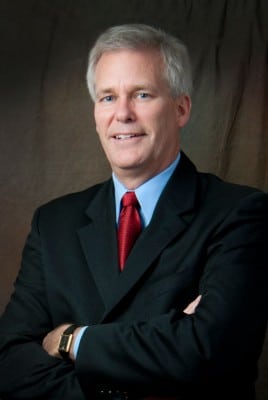
Executve Vice President, General Counsel & Secretary
PERRIGO
VITALS: Todd Kingma learned from an early age the value of customer service. When he got to college, he gave himself the options of law and medical school. He focused on medically related issues in his first private practice gig and was able to continue satisfying both interests when he went in-house with a pharmaceutical company. He has stayed on that track for the last 23 years.
At Perrigo, innovation isn’t relegated to R&D, and Todd Kingma sees it emerge naturally within the legal team. Half of the general counsel’s responsibilities involve partnering with his business colleagues to develop strategy and support business development—a balance his current and former CEOs encouraged—but his whole objective for the legal department, in order to support business development, is strategic.
Kingma came to Perrigo in 2003 after serving for 12 years with Pharmacia Corporation, which merged with Pfizer in 2003. Initially, Pfizer offered Kingma impressive resources (its legal budget exceeded Perrigo’s total revenue at the time), but he was drawn to Perrigo’s potential despite being a small company. “At first I had to role up my sleeves and do a lot myself,” Kingma says.
“But Perrigo had an exciting vision that made sense to me: to expand in the health-care arena and focus on quality, affordable health care. The health-care debate was as alive and well then as it is today, and I thought Perrigo could be a part of the solution to a very real health-care problem.”
In the decade he has been with Perrigo, Kingma has seen the business grow 500 percent, from an $800 million shop with 2,800 employees to a $4 billion enterprise with a staff of approximately 10,000.
Perrigo has expanded through innovative organic and inorganic growth. It has a wide range of prescription and over-the-counter products that you would expect from a pharmaceutical company, but while most people don’t think affordable health care and quality issues apply to pet health, Perrigo is making the case for the opposite. “We recently acquired two businesses, [Sergeant’s Pet Care Products, Inc. and Velcera, Inc.], in that space,” says Kingma, who is part of the executive committee that is responsible for designing and implementing the company’s strategy. Pet products are not the only channel through which Perrigo is creatively diversified. In the last four years, it has also broken into the infant-nutrition and diabetes-care markets. Obviously, legal’s role in an acquisitive business is paramount, but Kingma says he and his team are present long before and after the ink has dried on such contracts.
Because of the nature of its products, Perrigo relies on Kingma and his team to keep the business compliant in the heavily regulated health-care, food, and drug industries. To the company’s credit, Kingma says Perrigo has never had any material compliance issues—it has not paid any material fines, issued any material recalls, or suffered a quality-related shutdown, as some competitors have.
“Our business is very sound, but we don’t want to assume that everything will be fine tomorrow,” Kingma says. “We have to continually challenge our assumptions and traditional business models. We don’t want to avoid issues, and we’re not afraid to toss out ideas—even if they are out of the box. The legal team is at virtually every important stage of the business process working with our colleagues to make things happen.”
One of the biggest and most recent steps the company has taken to ensure its portfolio continues to bear the earmarks of an innovative enterprise is its $8.6 billion acquisition of Elan Corporation, an Irish biotechnology company. Concluding that acquisition before the end of 2013 was a significant achievement for Perrigo and its legal team. While the subsequent integration of Elan will obviously contribute to Perrigo’s growth, the company expects to see continued growth from its core business, which Kingma says receives equal attention from his team.
“As we look to the future, we want to continue to strike a balance between organic and inorganic growth,” he says. “The legal team will be a significant contributor to both aspects of growth. Anyone can identify issues, but working side-by-side with our business colleagues has allowed us to be strategic partners.”

